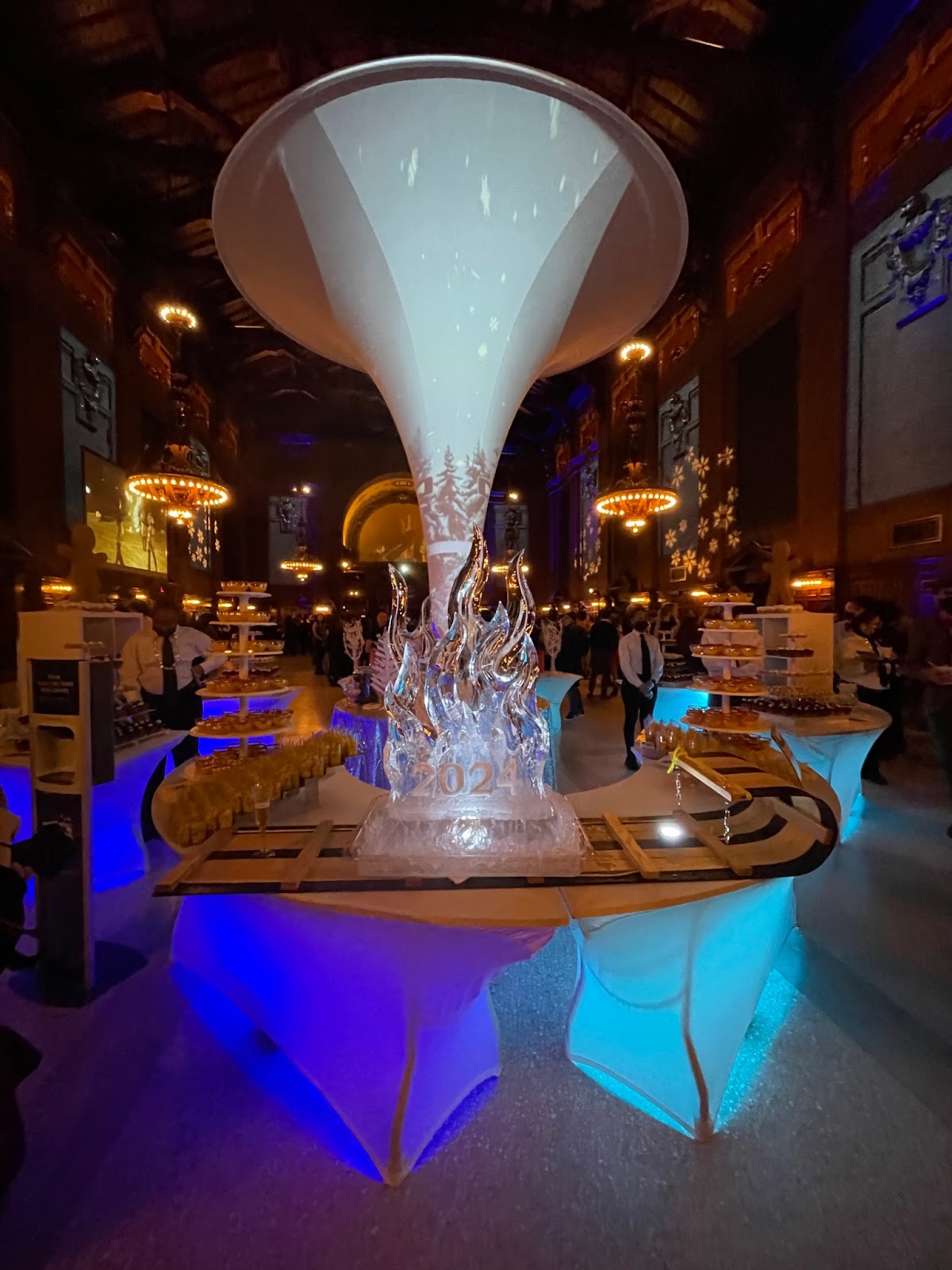Commons hosts holiday dinners; students sound alarm on food waste, COVID-19 risks
Yale held two separate holiday dinners at Commons this year, raising concerns among some students about food waste and COVID-19.

Courtesy of Giri Viswanathan
On Dec. 3 and Dec. 4, first-years and sophomores attended Yale’s historic holiday dinner at the newly renovated Commons dining hall. While some students enjoyed the holiday festivities, others expressed concerns about COVID-19 exposure and whether there was an unnecessary amount of food.
Customarily held in Commons in the days leading up to finals season, the holiday dinner is an opportunity for first years to come together and celebrate the holiday season — and the approaching end of the first semester — with their classmates. However, for several students, the gathering felt like a potential COVID-19 risk given a spike in on-campus cases over the past week.
“It was a gross display of hypocrisy for an institution that has been very conscious of COVID-19 up to this point, and I feel much less safe for having attended it,” Brook Smith ’25 told the News.
When Commons closed for construction in spring 2017, Yale Hospitality relocated the holiday dinner to the Yale on York venue. This year, for the first time since 2016, the holiday dinner returned to Commons.
Because the class of 2024 could not have a normal holiday dinner as first years due to COVID-19 restrictions, the University hosted a separate dinner for the current sophomores.
For both dinners, doors opened at 4:45 p.m., but lines stretched across Beinecke Plaza until well after 5:00 p.m. Upon arrival, students had the opportunity to check their coats and grab a champagne flute filled with sparkling apple juice. Wintry projections adorned the walls, stilt walkers stood by the door and synthetic snow decorated a set for students to take pictures.
“The First Year Holiday Dinner is one of Yale Hospitality’s most elaborate, engaging, and immersive events,” said Bob Sullivan, Yale Hospitality’s senior director of residential dining. “Our team felt very strongly about ensuring the Class of 2024 (this year’s sophomores) did not lose their opportunity to experience this event, though a year later!”
But some students expressed concerns that the event was ill-advised given the continued presence of COVID-19 on campus, suggesting that the decision to hold the festivities in person was contradictory to many of the University’s COVID-19 policies.
Alex Abarca ’24 told the News that there were few precautions in place to keep the holiday dinners from becoming “superspreader events.”
“The flagrant lack of consistency mars Yale’s COVID-19 response and undercuts the claim it is science-driven,” said Edmund Zheng ’24. “If you’re going to allow two holiday dinners with thousands of people in Commons who are mostly unmasked, how is that consistent with the rules that require masks in the library, where students aren’t as packed together?”
University COVID-19 Coordinator Stephanie Spangler told the News that students with questions or concerns about current University guidelines or community compliance with those guidelines, should contact their Health and Safety Leader, call the Campus COVID Resource Line or call the University hotline.
Smith told the News that the room was so packed that she could “barely move through the crowd,” adding that most students were unmasked because they were encouraged to eat standing up and move around the room.
Students walked around Commons to the different stations, grabbing items from the parade and talking with their friends and fellow classmates. Marco Niño ’24 described the event as a “kind of medieval cocktail party.”
As is tradition, the dinner was headlined by the Parade of Comestibles, an elaborate procession of food.
“There was a huge parade of food with ice sculptures, tons of seafood, all kinds of meats, sushi, a ridiculously long loaf of challah bread, a Yale-themed Yule log and so much more,” Giri Viswanathan ’25 said. “The procession was complete with a marching drumline, a trombone player, stilt walkers and plenty of pomp and circumstance. To top it all off, [University] President Peter Salovey — dressed a lot like Willy Wonka — led the ceremony.”
For the first time in the almost 70-year tradition of the Yale holiday dinner, the parade was led by the University president and dean of Yale College — currently, Salovey and Marvin Chun.
The parade began with the Blue Steel Drumline, a New Haven-based group. Salovey and Chun then led the group, followed by a procession of the flags of the 14 residential colleges.
The food followed, including floats replete with fruits and vegetables, poultry, charcuterie, sushi, bread, desserts and an ice sleigh of seafood.
But for some students, the amount of food felt excessive. Even if the University had provided half the amount of food that it did, Zheng told the News, the dinner would still have been extravagant.
Zheng added that it would have been nice for the University to outline a plan for donating uneaten food; he worried that most of it was thrown away.
“The holiday dinners felt wrong,” Patrick Hayes ’24 told the News. “There was way too much food, and it was unnecessary.”
Hayes suggested that the University work with organizations like the City’s Food System Policy Division and CitySeed to address food insecurity in New Haven, rather than spend significant money on events like the holiday dinner, or even the “fancy food” served in dining halls.
Commons reopened in September 2021 as part of the new Yale Schwarzman Center.







